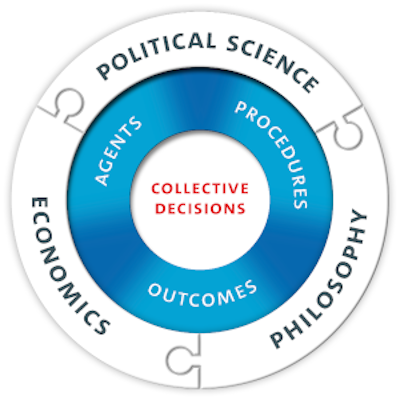Research
Agents, Procedures, Outcomes
What explains our procedures and institutions of collective decision-making? What is the economic, political, epistemic or ethical rationale for one form of collective decision-making over another? What gives legitimacy to different forms of collective decision-making?
These are fundamental questions about collective decision-making that economists, philosophers and political scientists have long tried to answer. The reasons for using specific decision procedures are many and complex and they may be highly contextual and fluid. It may be a matter of representation (democracy and justice), a matter of knowledge and rationality (in situations where groups perform better at determining true beliefs or making consistent decisions), or it may even be a matter of responsibility (the need to distribute moral and even legal burdens). This basic research is ongoing. For example, consider a concrete case of political disagreement and deadlock such as Brexit or the migration debate. Many believe that democratic decision-making has to take a “deliberative turn” in order to break the deadlock. But what does this mean precisely? The established answers need to be re-examined and updated using modern methods and theories drawn from the disciplines of economics, philosophy and political science. The research program will examine facets of these very same questions but in an integrated and interdisciplinary structure and will target specific dimensions of collective decision-making based on in-house research expertise.
The research program both links and contrasts descriptive and normative theory with the empirical analysis of collective decision-making, notably using experimental methods. Accordingly, all research projects of the graduate program (see below) apply a combination of theoretical and empirical/experimental approaches from different disciplines.

